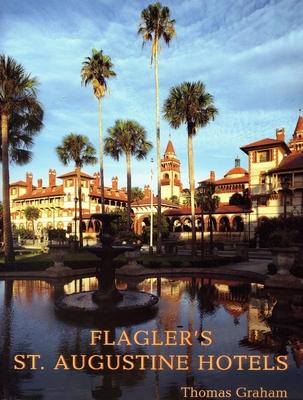Near the end of the nineteenth century, Standard Oil millionaire Henry Morrison Flagler ventured to St. Augustine, Florida, America's Oldest City, and transformed it into an exotic travel destination for the social elite. He raised magnificent, fanciful Spanish Renaissance hotel palaces on what had been orange grove and salt marsh. Then he connected his creation with the outside world by building a modern railroad system. Flagler's hotels stand as monuments to innovation in architecture and engineering. They were the first large buildings in the United States constructed of poured concrete, and they pioneered use of novel amenities like electric lights, steam heat, and elevators. They are still a vital part of modern St. Augustine. The Ponce de Leon, Flaglers preeminent hotel, now houses Flagler College; the Alcazar now holds the City Hall and the Lightner Museum. Only the Casa Monica (previously called the Cordova) is presently a hotel.

Flagler's St. Augustine Hotels: The Ponce de Leon, the Alcazar, and the Casa Monica
Near the end of the nineteenth century, Standard Oil millionaire Henry Morrison Flagler ventured to St. Augustine, Florida, America's Oldest City, and transformed it into an exotic travel destination for the social elite. He raised magnificent, fanciful Spanish Renaissance hotel palaces on what had been orange grove and salt marsh. Then he connected his creation with the outside world by building a modern railroad system. Flagler's hotels stand as monuments to innovation in architecture and engineering. They were the first large buildings in the United States constructed of poured concrete, and they pioneered use of novel amenities like electric lights, steam heat, and elevators. They are still a vital part of modern St. Augustine. The Ponce de Leon, Flaglers preeminent hotel, now houses Flagler College; the Alcazar now holds the City Hall and the Lightner Museum. Only the Casa Monica (previously called the Cordova) is presently a hotel.